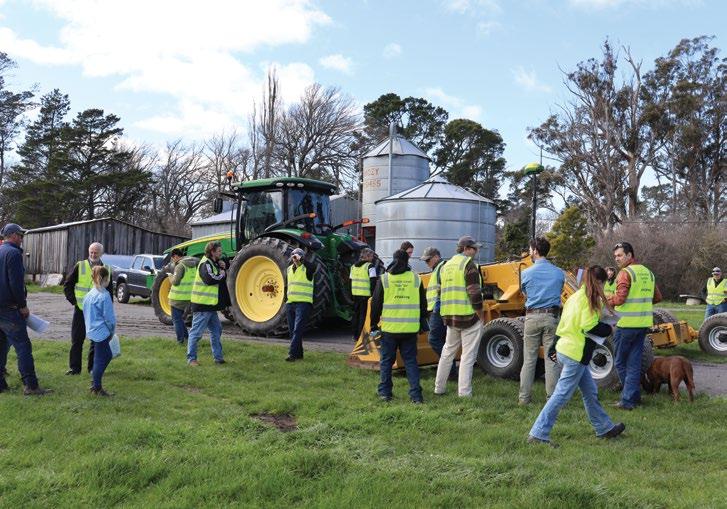
3 minute read
Precision ag in vegetables
In particular, they will introduce the term 'person conducting a business or undertaking'. The new legislation introduces a maximum penalty of between five- and 20-years' imprisonment for individuals, along with fines of up to $10 million for companies. Other new aspects include increased penalties, banning insurance coverage for WHS penalties and the introduction of enforceable undertakings as an alternative penalty. UnionsWA assistant secretary Owen Whittle said this clear message in law will reduce workplace fatalities. “Less contentious but also very important have been reforms in this Bill that acknowledge mental health impacts from work, improve standards of training for workplace safety representatives, provide vital whistle blower protections and the closure of a loophole that allowed employers to insure so that they never have to pay penalties for unlawful conduct,” Mr Whittle said. “A criminal should not be able to insure themselves against penalties.” The new laws will harmonise WA with other States and Territories, except Victoria. This means companies that operate across Australia will have similar obligations and requirements in each State and Territory. WA industrial relations minister Bill Johnston said the new legislation brings all industries together into one Work Health and Safety Act. "It reflects the social obligations and responsibilities the community now expects from companies and their senior management, including that mental health and wellbeing needs to be considered alongside physical safety. "I'm very pleased that we have significantly increased the maximum penalties available to the courts for companies and directors responsible for workplace tragedies. "This will act as a deterrent and ensure all workplaces focus on improving safety culture."
3 GROWERS learn about precision drainage operations using T3RRA CuttaTM and iGradeTM landplaning technologies at Greenvale Pastoral, Cressy, Tasmania as part of the precision agriculture grower tour in September 2019.
Advertisement

Precision ag in vegetables helps Australian growers
BY JULIE O’HALLORAN SENIOR DEVELOPMENT HORTICULTURIST, DEPARTMENT OF AGRICULTURE AND FISHERIES
Over 900 vegetable industry representatives have been introduced to the latest in precision agriculture technology in a threeyear project aimed at helping Australian growers improve farm management practices.
The project led by the Department of Agriculture and Fisheries demonstrated how precision agriculture technologies can help vegetable growers improve decision-making and on-farm management systems, as well as optimise productivity and profitability for a variety of crops. Through on-farm trials across the country, they validated a range of technologies such as soil and crop sensing tools for identifying and quantifying underperforming crop areas and defining management zones. The project connected with industry representatives through 23 face-to-face extension activities that demonstrated the potential of precision agriculture in vegetable systems with the aim of increasing adoption for the benefit of growers. Over 90 per cent of growers involved in the project indicated they would continue to use the precision agriculture approaches demonstrated through the project with 72 per cent expanding to other precision technologies. All project co-operators indicated that involvement in the project accelerated adoption, some by more than two years.
MORE INFORMATION
For more information view the new series of videos, factsheets and grower case studies available at www.business.qld.
gov.au/industries/farms-fishing-forestry/ agriculture/agribusiness/agtech-
vegetables. Adoption of precision systems technologies in vegetable production (VG16009) was a collaborative project with the University of New England, Tasmanian Institute of Agriculture, Harvest Moon, Primary Industries and Regions South Australia, vegetablesWA and the Society of Precision Agriculture Australia (SPAA). Contact Julie O’Halloran at:
julie.ohalloran@daf.qld.gov.au
This project has been funded by Hort Innovation using the vegetable research and development levy and funds from the Australian Government. For more information on the fund and strategic levy investment visit horticulture.com.au











